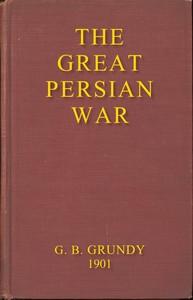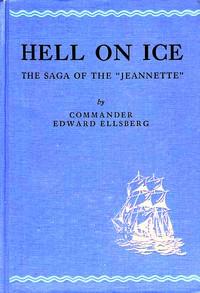|
|
Read this ebook for free! No credit card needed, absolutely nothing to pay.Words: 238982 in 78 pages
This is an ebook sharing website. You can read the uploaded ebooks for free here. No credit cards needed, nothing to pay. If you want to own a digital copy of the ebook, or want to read offline with your favorite ebook-reader, then you can choose to buy and download the ebook. TO FACE PAGE Marathon: from the "Soros," looking towards Little Marsh 163 The "Soros" at Marathon 165 Marathon from the "Soros" 187 The Vale of Tempe 231 The Harbour of Corcyra 241 Mountains of Thermopylae, from Phalara 257 Mount OEta and Plain of Malis 259 Asopos Ravine 261 The Gorge of the Asopos 261 Thermopylae, from Bridge of Alamana 263 View from Thermopylae, looking towards Artemisium 264 Channel of Artemisium, from 1600 Feet above Thermopylae 264 On Thermopylae-Elataea Road 265 Thermopylae between Middle and East Gate 290 The East Gate of Thermopylae 291 Summit of Anopaea, looking East 301 Coast at Middle Gate of Thermopylae in 480 310 Thermopylae 311 Thermopylae: the Middle Gate 311 First and Second Mounds, Middle Gate, Thermopylae 312 Plain of Euboea 321 The Narrows at Chalkis 323 Salamis, looking South from Mount AEgaleos, with the Island of Psyttaleia in the Centre 392 Plain of Thebes and Mount Kithaeron 436 Plain of Kopais, from Thebes 452 Plain of Plataea and Kithaeron 454 The First Position at Plataea 460 Plataea: "Island," from Side of Kithaeron 480 Boeotian Plain, from Plataea-Megara Pass 482 Plataea--West Side of ????? 482 Plataea: Panorama from Scene of Last Fight 502 MAPS. GREEK AND PERSIAN. The sharp, fierce struggle between Greek and Persian which was fought out on land and sea in the years 480-479, was regarded by those who were contemporary with it, and has ever since been looked upon as the great crisis in the history of the two races. It was a struggle whose results were decisive in the history of the world. From a purely military point of view, it is true, the fighting in those two years was not final. The loser did not issue from it in a condition so crippled that he could not continue the contest. So far from this being the case, Persia, for more than a century after Salamis was fought, continued not merely to show a bold front to Greece, but to maintain the preponderance of her power in the lands east of the AEgean, and to be a cause of dread to the Hellene of Europe. Athens did, in the period succeeding these great years of the war, wrest from Persia most of the Hellenic or semi-Hellenic Islands and coast towns in the Eastern AEgean; but her tenure of many of them was brief, and of all, precarious. The city States on the mainland slip rapidly from her grasp, and the measure of the independence from Persia in the case of some of those who remain on the tribute lists is at least open to discussion. It was long before the Greek world discovered that decay of the great Empire which is so apparent to the student of history who has the story of the fifth and fourth centuries before him. It set in soon after 479; but how far it was caused by the festering of the wounds inflicted in that year cannot now be said. The mischief was internal: it was situate far away in the depths of Asia, beyond the ken of the Greek of the fifth century, and it is not strange that he never appreciated the full extent of the malady. In reckoning up the results of a great war it is instructive to appreciate what was: it is impossible to ignore what might have been. Of the issues, military, political, and social, of this Graeco-Persian war, the military issue is perhaps the least important from the point of view of world-history. It did, indeed, teach a great lesson, in that it brought into prominence for the first time the strength and weakness of the East and West when brought into contact with one another; but the most extraordinary feature about this special aspect of the matter is that those who had tried the tremendous experiment were all but utterly unconscious of the true bearing of its results; and it was left to the fourth generation from them to appreciate a truth which their forefathers had proved but never realized. The possible results from a political and social point of view which might have ensued, had the war ended otherwise than it did, have formed the subject of many a surmise for those who have written the history of these years. If Herodotus can be taken as representative of the views and sentiments of men of his time,--the men, that is to say, of the half century which succeeded the critical phase of the long warfare with Persia,--it is evident that those who regarded the great series of events from a near perspective were supremely conscious of the political, and but little, if at all, conscious of the social issue. #THE ISSUES AT STAKE IN THE WAR.# It was perhaps the very intensity of the love of freedom with the Greek that blinded him to all save the fact of the preservation of that freedom. Doubtless that feeling was largely bound up with the social question of the preservation of Hellenic civilization, and with the consciousness of the peril to which any social system must be exposed under a political system alien to it. It is nevertheless strange that, if the peril had been regarded in this instance as a very real one, a historian like Herodotus, whose wide experience of other social systems seems to have had the effect of making him a peculiarly ardent Hellenist, should have failed to notice it. It is perhaps possible to suggest a reason for an omission so remarkable. Herodotus himself had been brought up in one of the Dorian cities of Asia, at a time when it was in a state of vassalage to Persia. He had personal experience of the position of the Greeks under Persian rule. He must furthermore have been intimately acquainted with the life in the great Ionian cities which were subject to the Empire. From the Greek point of view, their political position was the reverse of ideal; but even a Greek could hardly have denied that their position might have been much worse than it actually was. The most objectionable feature,--the Greek tyrant governing in the Persian interest,--had been to a great extent removed before his time; and after the deposition of tyranny the cities seem to have enjoyed a large measure of local independence under Persian suzerainty. Whatever the extent or nature of the tie which bound them to the sovereign government, it certainly does not seem to have been such as to crush social and intellectual development on Hellenic lines; in fact, with regard to intellectual development, these very cities seem to have been first in the field, and to have been infinitely more prominent under Persian than under Athenian rule. Whatever the cause, whether fear or policy, or both, it is plain, on the evidence of the Greeks themselves, that the Persian Government was extraordinarily lenient and liberal in its treatment of subject Greeks. The Hellenism of the fifth century, social and intellectual, was, moreover, no tender plant requiring careful political nurture. It had struck its roots deep into the very being of the race; and it may be doubted whether Persia could, even if she would, have eradicated so strong a growth. It is therefore possible to exaggerate the consequences which might have resulted to Greek civilization had the issue of the great war been favourable to the Persian. The inherent probabilities of the case do not warrant the assertion that such a victory would have brought about the substitution of an Eastern for a Western civilization in South European lands. It is, moreover, extremely doubtful whether the Great King could have maintained his hold upon European Greece for any prolonged period after the initial conquest; and any attempt to crush the Hellenism of the land would certainly have led to insurrection in a country designed by nature to be the home of communal and individual freedom. Speculation upon what "might have been" is ever open to the charge of idleness. It is, indeed, futile to attempt it in detail, by reason of the infinity of the factors which modify human action. But, inasmuch as what has been already said with regard to the possible results of the war might leave a wrong impression as to the legitimate deductions to be drawn from the main factors of a possible though imaginary situation, it is necessary to carry the speculation one step farther. That a Persian victory, even if only temporary, would have immensely modified the political development of Greece in the last three quarters of the fifth century, goes without saying; and such a modification could not but have seriously affected the genius of Hellenism. The splendour of the life and literature of the last half of the century was largely due to the elaboration at Athens of a political and social system, the counterpart of which the world has never seen. Never before, and never since, has existed a community so large in which so great a proportion of its members has had time to think out their own salvation, and to work it out upon their own lines of thought. #EASTERN AND WESTERN CIVILIZATION.# Salvation may seem a strange word to use of a system which produced the pitiful record of the fourth century; and yet, from amid all the evil, failure, and folly of the time there emerged a social order which was infinitely better than anything of the kind which had preceded it, and which was destined to form the foundation of the edifice of civilization in the western world at the present day. A Persian victory at Salamis, or even at Plataea, must have postponed the realization of those ideals which are the glory of the Greek people, and on which rests the claim of their race to the highest place in the history of the nations; and postponement might have made the full realization impossible. The catastrophe of 480 had been long in maturing. The march of events in South-eastern Europe and Western Asia had been slow. Still, the two paths of development tended in opposite directions; and it was inevitable that those who followed them should meet in a collision, the shock of which would be proportionate to the forces of propulsion. The moral strength of those forces was enormous. The ancient civilization of the East, ages old, strong in development, the one ideal of the millions of Western Asia, came into contact through its most western off-shoot with a civilization which, whatever its origin, and whatever the influences to which it had been exposed, was in striking contrast to it. On the eastern shores of the AEgean the two first met. It is impossible to say on the one hand what was the level of the civilization attained by the Greeks at the time they first settled on these coasts, more than 1000 years before Christ; and it is still less possible to say what was the state of the peoples they found there at the time of their settlement. Whether Lydia at this early age of its development had as yet come into contact with, and been influenced by, the civilization of the lands east and south of Taurus must also be matter of doubt. It is, on the whole, probable that it had; for the number and rapid development of the Greek trading towns on the East AEgean coast point to a considerable and valuable overland trade, whose roots would, in all probability, be in the lands of Mesopotamia, if not still farther east. The caravans from that rich plain would be sure to carry the infection of its civilization to the lands they traversed. But, in any case, neither the Greek nor this most westerly off-shoot of the Asiatic civilization can have passed beyond an early stage of development, nor, in so far as is known, did the representatives of either seek to inflict their own form of life upon the representatives of the other. Neither side seems to have been strong enough to conquer the other, even if either had been disposed to try. The Greek was content to trade; the various native races were without union, and cannot have been equal to the conquest of a people whose original settlements they had apparently been unable to prevent. Free books android app tbrJar TBR JAR Read Free books online gutenberg More posts by @FreeBooks
|
Terms of Use Stock Market News! © gutenberg.org.in2025 All Rights reserved.







